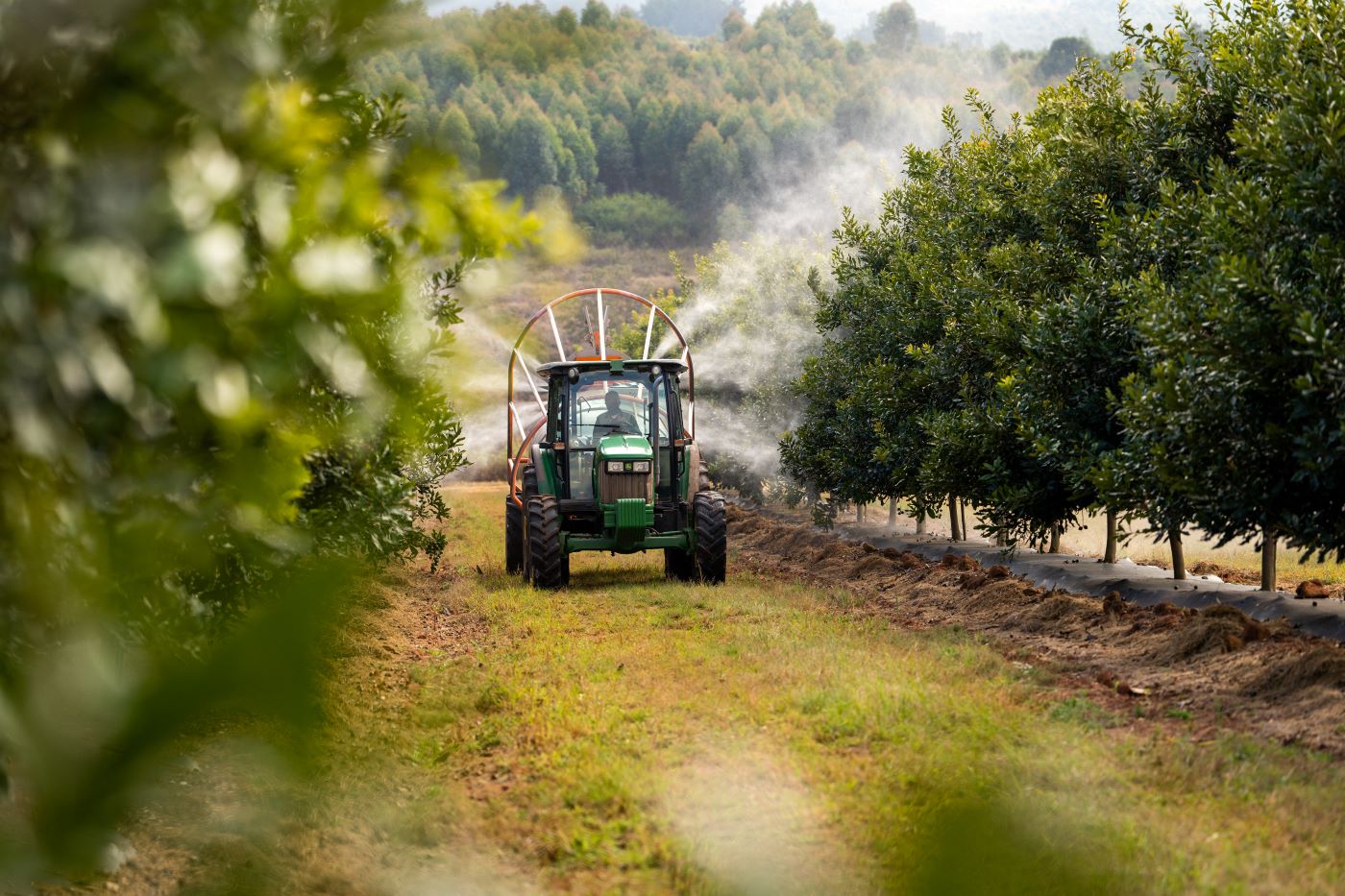
When most people think of high-value crops, the first things that come to mind are probably fruits and vegetables. However, one nut is quickly becoming a favourite among high-value crop farmers: the macadamia.
Macadamia trees can be temperamental but are hardy in conditions similar to the biome where they originated and can tolerate various soil conditions and climates. They also have a long shelf life, making them attractive to buyers. Consumers highly prize macadamia nuts due to their delicious flavour and nutritional value. Lastly, macadamia trees require little maintenance, making them an affordable option for high-value crop farmers.
Although they are native to Australia, macadamias have grown in Southern Africa since the 1960s and today compete with Australia in terms of being the largest producer.
Macadamia production in Southern Africa: The production growth
With a production increase of more than 20-fold in the last 20 years, macadamias have become the fastest-growing tree crop industry in South Africa. Production grew from 1,211 tonnes of nut-in-shell (NIS) in 1991 to an estimated 61,288 tonnes in 2022.

Yearly Southern Africa Macadamia Production
Production has steadily increased over the years, with a decline in 2020, possibly due to the worldwide Covid-19 pandemic and unfavourable weather conditions. Rainfall experienced in 2020 was average, and while many production regions experienced high temperatures during flowering other parts of the country experienced colder winters, resulting in frost damage.
Pierrie Cronjé, chairperson of Macadamias South Africa, spoke at the annual SAMAC conference in White River earlier in October this year and said that 2022 had probably been the toughest the industry had seen when it comes to the marketing of macadamia nuts, with the fallen price of macadamia. The most significant factors in the price reduction being the struggling global economy and high inflation, the expanding Chinese crop, as well as the stale market conditions in China due to the Covid-19 pandemic.
Growth in hectares
A significant increase in hectares planted annually across the Southern African Continent occurred between 2016 and 2018, followed by a decline in 2019 and a further decline in 2020. The Covid-19 pandemic likely contributed to the decrease in growth for 2020, as seen by the jump in hectares planted from 2020 to 2021.

Macadamia Orchard Hectares Planted Per Year
Why is macadamias a growing industry?
The growing demand for macadamias can be due to the popularity of the commodity. Macro-trends such as vegan and plant-based diets, along with the health benefits of this high-value product, could be an underlying factor in the growing demand.
A contributing factor could also be the use of processed macadamia nuts in industries such as food and beverage, cosmetics, and personal care. However, the processing and snack industry remains the largest consumer of macadamia.
While most macadamias are exported, 7% of the South African macadamia nuts are consumed by the local market, leaving more room for growth locally for macadamia nut producers and processors to grow the confectionery and baking industries.
For the past several years, macadamia demand has outstripped the supply. Even though Macadamias are less than 2% of the global nut basket, the exponential supply increase forecasted for the next five years could result in supply exceeding demand in the short term, potentially causing a price disruption.
An in-depth look at the industry
Even though the macadamia industry is booming, it is an expensive investment and a long-term commitment, taking many years to produce profits. Planting a macadamia crop can cost around R60,000, with a potential income of R178,000 per hectare once the orchard starts producing.
The industry is export-based, with 98% of the annual macadamia production shipped to international markets, and approximately 97% of NIS was exported to East Asia and Southeast Asia (China).
The demand for South African macadamias remained strong over the past years, with the annual production value increasing significantly from R32 million in 1996 to approximately R5.1 billion in 2021.
Another area where the macadamia industry has contributed significantly to the South African market is employment. Most of the industry’s workers are seasonal; still, for harvesting and processing during February and August, at least ten thousand permanent jobs have been created, and over nine thousand during peak seasons.
As new orchards continue to be established, employment creation is expected to continue to increase due to increased production.
Why you should take note of macadamias
In recent years, macadamias have also become popular as a source of healthy fats and antioxidants.
- Macadamias are rich in nutrients. They are an excellent source of healthy fats, fibre, vitamins, and minerals.
- Macadamias are rich in antioxidants. These nutrients scavenge harmful toxins that can lead to chronic disease.
- Macadamias boost heart health. The healthy fats in macadamias help lower cholesterol levels and can reduce the risk of heart disease and stroke.
- Macadamias reduce your risk of metabolic syndrome. This condition is characterised by high blood sugar and cholesterol levels that raise your risk of stroke, heart disease and type 2 diabetes.
- Macadamias aid in weight loss. The healthy fats and fibre in these nuts help to promote satiety and reduce calorie intake. This can lead to weight loss over time.
- Macadamias improve gut health. The fibre in macadamias acts as a prebiotic, feeding the beneficial bacteria in the gut. This helps to keep the gut healthy and reduces the risk of gastrointestinal problems such as constipation and diarrhoea.
- Emerging research shows that the antioxidants in Macadamias provide anti-cancer properties; however, more research on this is needed.*
- Macadamias boost brain health. The healthy fats and antioxidants in macadamias help to protect the brain from age-related damage and improve cognitive function; however, more research on this is needed.*
- Macadamia consumption has been linked with increased longevity. These nuts may help extend life by reducing the risk of premature death by approximately one-third.*
- Macadamias are easy to add to your diet. You can enjoy them as a snack or add them to various recipes such as salads, baked goods, or smoothies.
Adding macadamia nuts to your diet is a delicious way to improve your health.
The cost of macadamias – from a buyer’s point of view
As a consumer, Macadamias may seem unreasonably high-priced. This is not without reason. Macadamias are expensive due to their supply. Like most nuts, macadamias grow on trees, leading to a delay from planting to harvest. From planting, it can take trees between three and seven years to reach maturity to start harvesting.
Macadamia trees can also only exist in agricultural areas with high altitudes, high rainfall, and temperate climates similar to Australia.
How can John Deere support the macadamia industry?
Like all good things, macadamia production does not happen by itself. Establishing orchards is costly, and reaping the first decent harvest takes a while. After that, other challenges, like pests, need to be considered and can likely increase production costs.
Fortunately, macadamia farmers in South Africa can count on the support of John Deere, helping them with;
Reliable Equipment
 The John Deere value does not lie in its name or the colour of its paint but in what the tractor or implement does for farmers. John Deere offers the high-value crops market a range of tractors that do the job quickly and efficiently and provide a comprehensive value solution that fully justifies the investment with each purchase.
The John Deere value does not lie in its name or the colour of its paint but in what the tractor or implement does for farmers. John Deere offers the high-value crops market a range of tractors that do the job quickly and efficiently and provide a comprehensive value solution that fully justifies the investment with each purchase.
The John Deere 5E Series Tractors, including the 5055E, 5075E and 5090E models, are highly suitable for efficient use in macadamia orchards with appropriate tools such as a plough, field hoe, planter, sprayer, and trailer. The 5055E and 5075E tractors are equipped with the popular John Deere 3-cylinder 2,9-litre Powertech™ turbodiesel engine, while the 5090E tractor is equipped with the John Deere 4-cylinder 4,5-litre Powertech™ turbodiesel engine.
The 24% Torque reserve on the 5090E model allows for ease of operation through tough spots without needing to change gears. The E-Series also provide operator comfort with an adjustable seat to reduce operator fatigue.
Farmers can also choose between a 9F / 3R SyncroShuttle (TSS) or a 12F / 12R PowerReverser (PR) gearbox for their 5E tractor while benefiting from the 540 / 540E PTO option, contributing to up to 30% fuel saving.
The E-series is suitable for many applications in your orchard. Its versatility will save you time and money as it performs the tasks of multiple tractors.
Aftermarket Service and Parts supply
John Deere understand that uptime is critical to any farming operation and is passionate about the service farmers receive and the availability of spare parts where and when needed.
John Deere Dealers are the first point of contact for Aftermarket Service and Parts, and John Deere is dedicated to keeping its dealers equipped with the necessary products and services to keep farmers up and running.
Financing solutions through John Deere Financial
John Deere Financial understands the importance of access to finance and believes in offering all farmers the same opportunity to succeed through solutions that suit each farmer’s needs.
They offer customers an easy application process, flexible, customised financial solutions, market-leading interest rates, excellent service, and are quick to a yes.
No matter what a high-value crop farmer’s needs are, John Deere offers complete peace of mind. Invest in the future – invest in John Deere.
Conclusion
Macadamia nut production is on the rise worldwide, and for good reason. The demand for this nutrient-rich nut continues to increase both in Southern Africa and abroad, and with the right equipment, it can be grown successfully.
If you’re looking for a profitable agricultural endeavour that offers health benefits to customers, consider investing in a macadamia nut orchard. John Deere is committed to helping growers succeed in this industry, so reach out today for more information about our equipment and services tailored specifically to macadamia farmers.












Comments